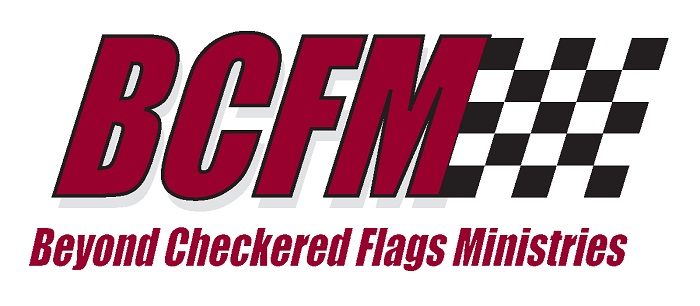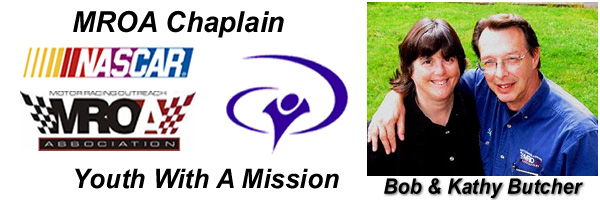
Chapel Service
Special Edition
Colorado National Speedway
June 11, 2016
“The Book of James – part 3”
A People of Justice & Mercy
James 2: 1-17
www.BeyondCheckeredFlags.com
Bob Butcher
Coinsiding with Church on the Hill message by:
Bruce Stefanik & Jason Treadwell
We are moving up to part 3 in our study of the Book of James.
I am sure that you have already figured out that James is a pretty simple and straight forward message that doesn’t necessarily take anyone else to help you figure what the bottom line message is. If we simply sit down and spend a little quality time with the Lord by asking Him to reveal what we need to understand in James, we will get it.
As I stated last time: James is a power packed book on how to “live and do the Christian faith.” Yeah, I said that James is not only relevant to his day, but also today, and the future of all mankind. It is rock solid, period!
God speaks His Word through His servant, or Prophet as He did through Isaiah 55:11:
“My Word always accomplishes what I desire, and they’ll complet e the assignment I gave them. My Word will never return to Me unfinished.”
Today’s Message in the online Live form is found at:
http://cothcommunity.com/purereligion_media03.pdf
James 2: 1-17:
Background: There is a barrage of discourse today calling for the redistribution of wealth and to help the poor and homeless. 2000 years ago James and the early church wrestled with the exact same issues! So how does a resurrection community church or – even a racing community like ours try to live out the truths of justice and mercy as we love our neighbor like ourself? Let me also mention for sake of interest that this thought is also exactly what the communist used to take over nations around the world. They asked the poor people “why should they have all that when you only have this as they pointed to their wealthy homes, etc.” Nation after nation has fallen through history to such a tactic to gain control at the expense of others.
“My brothers and sisters, believers in our glorious Lord Jesus Christ must not show favoritism. 2 Suppose a man comes into your meeting wearing a gold ring and fine clothes, and a poor man in filthy old clothes also comes in. 3 If you show special attention to the man wearing fine clothes and say, “Here’s a good seat for you,” but say to the poor man, “You stand there” or “Sit over there on the floor,” 4 have you not discriminated among yourselves and become judges with evil thoughts and motives?
5 Listen, my dear brothers and sisters: Has not God chosen those who are poor in the eyes of the world to be rich in faith and to inherit the kingdom He promised those who love Him? 6 But you have dishonored the poor. Is it not the rich who are exploiting you? Are they not the ones who are dragging you into court? 7 Are they not the ones who are blaspheming the noble name of Him to whom you belong?
8 If you really keep the royal law found in Scripture, “Love your neighbor as yourself,” you are doing right. 9 But if you show favoritism, you sin and are convicted by the law as lawbreakers. 10 For whoever keeps the whole law and yet stumbles at just one point is guilty of breaking all of it. 11 For He who said, “You shall not commit adultery,” also said, “You shall not murder.” If you do not commit adultery but do commit murder, you have become a lawbreaker and just as guilty as one breaking all of the law.
12 Speak and act as those who are going to be judged by the law that gives freedom, 13 because judgment without mercy will be shown to anyone who has not been merciful. Mercy triumphs over judgment.
14 What good is it, my brothers and sisters, if someone claims to have faith but has no deeds? Can such faith save them? 15 Suppose a brother or a sister is without clothes and daily food. 16 If one of you says to them, “Go in peace; keep warm and well fed,” but does nothing about their physical needs, what good is it? 17 So you see, faith by itself isn’t enough. Unless it produces good deeds, it is dead and useless. In other words faith by itself, if it is not accompanied by action, is dead.
- You have certainly noted that we are in an election year with all the rhetoric and promises flying about how the candidates are going to change things and make them better or the other one is going to make it worse. Some better than others have stirred up the injustice, anger, discontent and here we find James speaking into exactly the same issues of justice as we have today!
- I have said James is an amazing book and widely used in church messages; but also it is a book taken out of context maybe more than any other!
- In the first four verses alone you likely see the last time you were at church when an issue arose over someone coming in that was living on the street or worse. How was it handled? Here arises the first question in any church, any community, or even Series:
- WHAT ARE WE CALLED TO BE?
- Answer: A Community of Justice – especially for a church, government, but even for a series!
- Justice doesn’t mean “sameness.” Equality & equity are two different things. Justice is rooted in the heart of God. But injustice is usually a subtle thing and rooted in power, control, structure, etc.
- Extra: Look at the problem of the day in Acts 6 when one group of Christian Jews conflicted with another group (Hellenistic/Greek Jews) over food provided to widows in their group. It stemmed in control and structure. So often it is the same today! (The video deals with this well)
- We are also called to be a community of Mercy.
- Mercy here is not the soft “I forgive him or don’t hold it against her” thing. Here it is completely practical. It is an action. It is taking what I have and giving it to someone who needs it. Mercy doesn’t ignore justice, but it can choose to overlook what by law should happen. Mercy looks justice in the face and says instead of law I will do something kind.
- Jesus constantly befuddled the Jewish leaders because He forgave, healed, while they looked to apply the law and the justice required.
- Extra: Look at Luke 10: 25-29 at the rich young ruler asking how to inherit eternal life. It’s a Law question and Jesus answers scripturally and then the man (in verse 29) wants to justify himself by looking for a loophole and asking …then who is my neighbor? He simply wanted to have power and make the rules in what makes me just or not. So Jesus answers the man again with the story of the Good Samaritan. The Samaritan showed what mercy looked like in real life. He stopped; he crossed an ethnic barrier by even speaking to a Jew. He used his own bandages, oil & wine, donkey, and wealth to care for the man.
- We tend to categorize people into two groups …them and us. We easily blow by someone we don’t know on the side of the road but if we know them we pull over, don’t we?
- So here is question two:
- WHY SHOULD WE BECOME A COMMUNITY OF JUSTICE AND MERCY?
- Simply go back to verse one: We are NOT to show favoritism in a community …especially if it involves a Christian church, …or we believe in Christ. You cannot get more simple than that!
- So what about our NASCAR K&N West racing community? Aren’t we expected to show the same respect? …especially if we claim to be a Believer?
- We as Believers (especially) should understand that mankind is created in God’s image. He deposited His glory in human beings …in ALL human beings. (Psalms 8) (Genesis 9:6 is the very reason we are to respect others & life. It’s the basis for law. It is the Christian world view of peace also. Most major life issues our society faces today needs to be rooted in the scripture like these. It makes the bottom line and not just an answer which is nothing more than an opinion.
- Here is the reason why you can only be successful mercy ministry if your reason and basis is because who you are trying to help are created in the image of God. Otherwise disappointment or frustration will set in as you receive no thanks or they just want more. You have to have an eternal reason to continue through the hurt or disillusionment.
- Consider the Declaration of Independence and Thomas Jefferson’s quote “We hold these truths to be self-evident: that all men are created equal; that they are endowed by their Creator with certain unalienable rights; that among these are life, liberty, and the pursuit of happiness.” This is the national basis of our freedom and equality of human rights.
- The video has some great quotes historically from Aristotle, Martin Luther King, and Karl Marx that brings the area of justice mercy to clarity and how we got to where we are today.
- Having personally grown up (Bob) with communism and our ministry so much into the communist bloc countries I have personally come to realize the epitome of how this belief system is so opposite God’s design. The communist system has nothing to do with equality, mercy, or human rights we like to talk about today. It was all about what can you give to the state? What value do you have? The value of life was nil and still is to any nation that has no belief that the Creator God is loving, kind and made us in His own image making all mankind valuable no matter one’s ethnicity.
- This is what James is talking about. Human value is NOT based upon performance BUT UPON their creation in the image of God. It is up to Christians to uphold this truth and defend it.
- So with that statement let me remind us that means God will hold us the most accountable of all for walking out this knowledge of God’s image in us as basis for value!
- Question 3 is:
- THEN HOW ARE WE TO PERSONALLY LIVE THIS OUT?
- First off it’s about remembering who we are. Go back to verse 7: James is saying we first remember who we reflect: …The noble name of God. When we discriminate we are just like everyone else who doesn’t recognize Who brought us into this world, given a new name, and a new identity that reflects the very image of God, Himself.
- Here is another important area worth going to the video on. (It is right about 30 minutes in). I cannot word this area which wisely and succinctly explains the humility of both the rich and the poor. One is not better than the other or guilty either. But Bruce & Jason certainly explain it better than I can how important it is for us to see both sides and why we tend to avoid contact because we feel so guilty whenever we are with the poor of the world. Kathy & I and our family have been heavily involved through the years and understand the feeling you get. It is not an easy issue no matter what the context or area of the world.
- Here is God’s example to us of how to live this out:
- 2 Corinthians 8: 9: “ You know the generous grace of our Lord Jesus Christ. Though He was rich, yet for your sakes He became poor, so that by His poverty He could make you rich.”
- So Jesus Christ literally had it all and gave it all up in order to reach you and me. Then He says to take up your cross and follow me. So what that is going to look like on a daily basis is about the Call of God upon our life. But, God, what does my cross look like? How do I take this up, the things that You have given me? How do I become poor for someone else’s sake so that they might become rich?
- So maybe the cross is a money thing. Maybe since we have been given the Gospel, maybe it is how to give that same Gospel to others. We are not called to throw bread from a distance, but like our personal God did; walk through this with them. We need to be close enough to touch them, smell them, and feel what they feel.
- Each of us has to answer the Lord and ask How, What, to Whom?
***Here is a very dangerous trap that anyone, especially missionaries or ministries can fall into:
…and it scares Kathy & me to the core!!!
- It is all too easy—whether in business, family, or church—to view others from the perspective of how they can benefit us.
- We can value them for what we can get from them, rather than focusing on how we can serve them in Jesus’s name.
- In his letter to the Philippians, Paul wrote, “Do nothing out of selfish ambition or vain conceit. Rather, in humility value others above yourselves, not looking to your own interests but each of you to the interests of the others” (Phil. 2:3–4).
- Joy comes from putting another’s needs ahead of our own.
- People are not to be used for our own benefit. Because they are loved by God and we are loved by Him, we love one another. His love is the greatest love of all.
- Here is Kathy & my prayer that keeps us in check from this dangerous issue:
- “Teach me, Lord, to see people as You do—bearing Your image, being worthy of Your love, and needing Your care. May Your great love find in my heart a vessel through which that love can be displayed.”
Bible Scriptures from the GBB Version
Gospel by Bob

